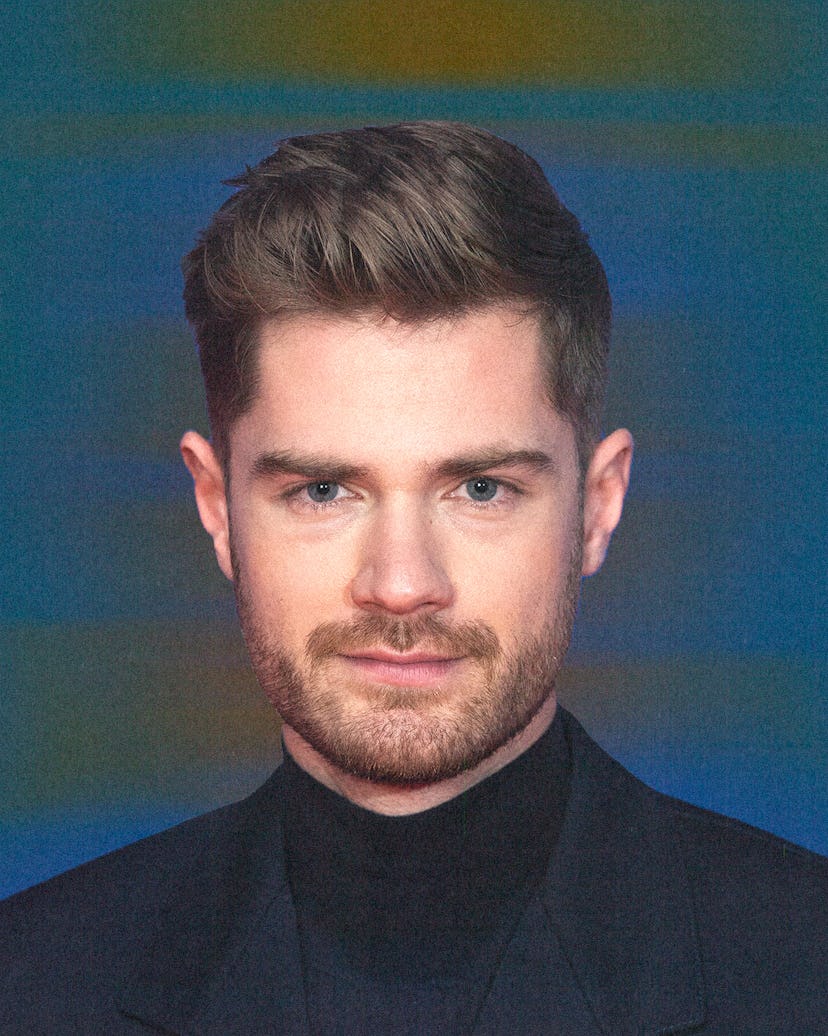Confronting gender norms and how they impact relationships, bonding, and intimacy are at the forefront of the mainstream consciousness—so much so that the topic has served as subject matter for countless new films, like The Banshees of Inisherin and Everything Everywhere All at Once. The director Lukas Dhont is attacking these issues head-on with his Cannes Award-winning drama Close. His camera bound tightly to the relationship between two young boys, Léo (Eden Dambrine) and Rémi (Gustav De Waele), Dhont tracks the torrid changes in their dynamic as their intimacy becomes vulnerable to public scrutiny at school.
Flush with intensity, florid colors, and a ravishing soundscape, Close represents another notch in the young Belgian filmmaker’s belt of movies intent on interrogating the precarious lines between desire and self-knowledge, and the things interrupting those journeys. W magazine spoke with Dhont about the film, his path to catharsis, and why crying is harder to make happen than you think.
What part of your own childhood did you try to imbue in Close?
There was this moment in time, that fragile age when caution is thrown to the wind, when I started to distance myself from male friends, because I began to fear intimacy. For the longest time, I had the feeling that that was something only felt by me. A friend of mine gave me a book called Deep Secrets: Boys’ Friendships and the Crisis of Connection, research done among 150 boys from different backgrounds and cultures, by American psychologist Niobe Way. In that moment, I realized so many young men have pushed away and have been pushed away. And I felt like expressing myself, finally. I wanted to find a cinematic translation for this epidemic of loneliness when it comes to masculinity.
Was it cathartic to confront these emotions as an adult?
I’m thinking of it more as a collective thing that binds the people who watch this film. The wounds that are shown in the film are, I think, deeply universal. We have all been in friendship and have felt the heartbreak of friendship.
When you were approaching this material and trying to develop a visual and cinematic language, where did you start? I was very much struck, especially by the first 10 or 15 minutes, when you’re right in the middle of their friendship.
I wanted the very first 15 minutes of this film to be a short film within a feature. It [takes place during] this state of childhood friendship where love doesn’t have to have a name yet, where we run freely.
What was the last movie you watched?
Holy Spider by Ali Abbasi.
What was the last thing that made you cry?
Reunion by Fred Uhlman. It’s a beautiful book about two boys; one is German and the other one is Jewish. It’s set during that crucial moment in time, and they share a beautiful friendship until the moment that the one boy starts to realize there’s this opposition against Jewish people. The last page of that book makes me sob. I also have to say that the last episode of Maid, this Netflix show, made me ugly cry very recently.
Are you an easy crier at the movies or while watching TV?
Constantly! I cry easily.
I cry all the time. Like, I cried at The Lobster.
Who doesn’t cry at The Lobster?
People who have no heart! Do you think that easy emotionality has shaped your sensibilities?
Emotionality is often something that we put under intelligence; we put the language of the heart under the language of the head. I think it’s actually really difficult to make people feel honest, authentic emotions. Because from the moment that it feels constructed, I’m out of there—like, I’m gone, ciao.
Eden Dambrine, Lukas Dhont, and Gustav De Waele attend opening ceremony for the International Film Fest Gent festival on October 11, 2022 in Gent, Belgium.
The best thing a movie can do is make you feel and think.
I hope Close does that.
Yes, absolutely. I actually saw Close on a date.
Oh, okay. And how did the date go?
It was interesting seeing it through his eyes, since it deals with youth and masculinity. Do you like going to see movies on dates?
I remember going to see Phantom Thread on a date; the power balance in that relationship was interesting to experience as date material. Sparks were immediate—very necessary and urgent conversations [took place].
